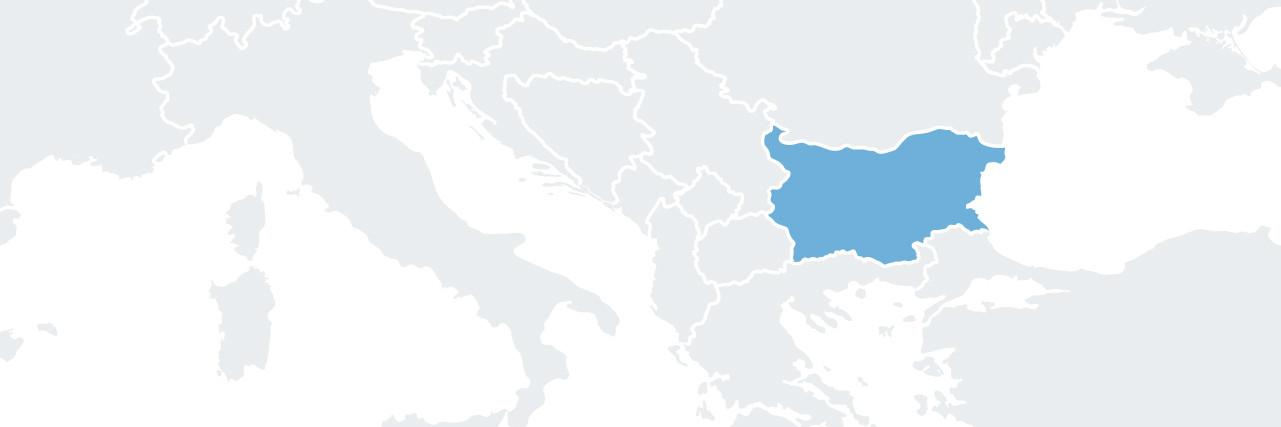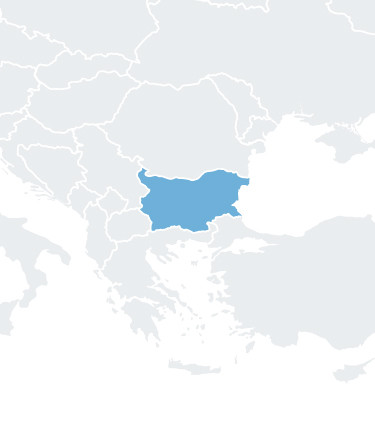
Stray Animal Care in Bulgaria
Tackling Bulgaria’s stray animal challenge with compassion
From 1999 to 2006, over 70,000 stray dogs were killed in Sofia, the capital of Bulgaria. Dogs were caught, kept for 14 days and then killed, but without a clear reduction of the stray dog numbers in the streets. There was no dog population management programme in place, and no veterinary staff prepared to work with stray animals.
In 2008, the first Bulgarian Animal Protection Act came into force, which prohibited culling as a control method for the stray dog population. However, as many municipalities do not have the resources to carry out stray animal neutering projects, and there is little enforcement preventing pet abandonment, it is still a challenge to implement humane management of stray dogs and cats.
Guarding the well-being of strays from 2008 onwards
FOUR PAWS started our first Stray Animal Care project in Bulgaria in 2008, and employed a local Stray Animal Care (SAC) team in 2009, followed by purchasing a mobile veterinary clinic to enable the team to work in different municipalities across the country. Through the success of these projects, an agreement was signed with the municipal authorities to operate a stationary veterinary clinic for stray animals near the capital, in the suburb Bankya. The clinic has been providing neutering services and veterinary treatment for stray animals since 2013. Additionally, some strays that need extra care are rehomed through a local adoption programme.
In September 2022, FOUR PAWS together with Sofia Municipality and the Municipal Enterprise Ecoravnovesie, were recognised by the European Parliament as a ‘best practise’ example for successfully and humanely reducing the stray dog population in Sofia: from an estimated 11,124 dogs in 2007 to an estimated 3,589 dogs in 2018. In addition to that, there was an estimated sterilisation rate of over 70% (including pets) documented, the remaining stray dogs are aging over time and very few new stray dogs are observed resulting in an improvement in the welfare of the existing stay animal population.
Cats suffer in silence
In Sofia, it appears that as the stray dog population has gradually decreased, the stray cat population has grown. An explanation for this might be that cats survive longer and produce more kittens when there are fewer free-roaming dogs around. Many cities in Bulgaria are facing the problem of growing stray cat populations, but currently, there is little legislation or enforcement to humanely curb these. This may be because cats are not considered to cause as much nuisance as stray dogs, and generally people are less afraid of stray cats than stray dogs. In addition, cats tend to be less visible as they hide more and are mainly active at night. Life for stray cats is however just as hard as for stray dogs, yet their suffering often goes unnoticed.
FOUR PAWS as the main animal welfare organisation working with stray cats
FOUR PAWS together with Sofia Municipality started a Stray Cat Project in 2021 in Sofia, the capital of Bulgaria, with the intent of taking a strategic and humane approach to reducing the significant stray cat population. This approach includes undertaking surveys to estimate the stray cat population, conducting TNVR (Trap-Neuter-Vaccinate-Return) projects to desex stray cats and employing community engagement tools such as responsible pet ownership education to address the causes of abandonment. FOUR PAWS also has a Stray Cat Voucher Programme, which is an ongoing programme in which we have a cooperation with private veterinary clinics in Sofia. Each year, 2,000 vouchers are provided to members of the public who can use these to bring a stray/community cat to a nearby clinic for sterilisation. These cooperations enable us to extend our reach and act quickly and effectively to requests by the public.
Currently, FOUR PAWS is the leading animal welfare organisation in Bulgaria working sustainably with stray cats.
How FOUR PAWS works
In addition to our long-term cat programme in Sofia and our veterinary clinic in Bankya, we aim to deliver sustainable and humane stray animal projects working with different municipalities where we take a community engagement approach. Our aim is to address both the symptoms and causes of stray animals for long-term impact. This is why we focus on only a few municipalities simultaneously for a longer period of time. In these municipalities, we work on the following outcomes:
- A better understanding of the actual dog population size and dynamics;
- An engaged community with the necessary knowledge, skills and expertise to develop and implement a humane and sustainable stray animal management programme;
- A reduction of the stray populations through mass desexing drives as well as better welfare of the individual animals still living on the streets;
- An improvement in responsible pet ownership, a root cause of the stray problem;
- A better welfare for animals in shelters and an increase in local adoption rates;
- A community with a deeper understanding of stray animals who treat them with respect and care in the future.
Where FOUR PAWS works
The municipalities where FOUR PAWS conducts sustainable and humane stray animal projects.
Tryavna, 2022 – current
In October 2022, shortly after the start of our collaboration with Sevlievo, Tryavna, a neighbouring municipality, expressed interest in working with FOUR PAWS. Tryavna is a town in central Bulgaria, situated in the northern slopes of the Balkan range, on the Tryavna river valley, near Gabrovo. Aware of the increasing stray animal situation, the municipality approached us with a shared goal of implementing humane and effective measures to address the issue. This collaboration signifies their proactive approach and commitment to creating a positive impact on animal welfare within their community.
Sevlievo, 2022 – current
In May 2022, our Community Engagement programme extended its reach to Sevlievo, a picturesque municipality located in the north-central region of Bulgaria, encompassing a town and 45 villages. In light of the increasing number of stray animals in recent years, there has been growing tension within the local community. Through this initiative, the community of Sevlievo is embracing the responsibility together of tackling this issue and is determined to develop compassionate and sustainable solutions for its resolution.
Elin Pelin, 2021 – June 2023
Since June 2021, FOUR PAWS and the Municipality of Elin Pelin – a city located 25 kilometres southeast of Sofia – have joined forces to implement a Community Engagement programme marking the launch of a sustainable, humane dog and cat population management project with lasting benefits for both people and animals. The ultimate goal of this project being that Elin Pelin becomes the first municipality in Bulgaria with no stray dogs on its streets.
Additionally to our stationary clinic in Bankya and our long-term projects in several municipalities, we occasionally visit remote communities for short-term projects to provide access to veterinary care.













